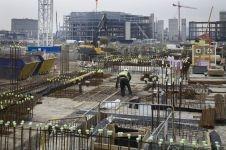Surveying graduate says the 2012 transport scheme can influence planning, help economic growth and boost employment
London 2012 has a tremendous opportunity to produce a positive transport legacy for the capital and the UK as a whole. It can also revitalise a previously deprived and dilapidated area of east London.
The transport legacy planning for the Games is a central part of The London Organising Committee of the Olympic Games’ strategy for 2012, and many have argued it is this which won London the right to host the Games in the first place. And, plans for transport legacy seem to be going very well at this stage.
There is however no room for complacency and a few problems need to be addressed to ensure that London gains the maximum out of the ‘show’ that is the Olympic Games as it will provide a once in a lifetime opportunity which must not be missed.
The ODA aims to implement a transport plan that will produce benefits which reach beyond simply delivering transport during the Games.
It is committed to providing a legacy of new transport infrastructure, enhanced and new public transport services, training and employment opportunities in the transport sector (regenerating east London).
The implementation of the transport plan will provide benefits in two ways. The first is to enhance or accelerate existing transport schemes – for example, co-funding 22 of an additional 55 rail cars to increase capacity on the Docklands Light Railway.
The transport strategy will build on and maximise existing transport networks, infrastructure and assets
For other schemes, such as the upgrade of Stratford Regional Station, the ODA is funding the full scheme so that benefits can be enjoyed before, during and after 2012.
London 2012 is committed to working with stakeholders to maximise the economic, social, health, environmental and sporting benefits the Games bring to the UK and London.
A wide range of schemes are proposed to enhance transport networks across the UK and London to meet the travel demand generated by the Games.
The transport strategy will build on and maximise existing transport networks, infrastructure and assets.
It will also utilise future transport networks that are planned to be in place by 2012.
The transport legacy will influence every other segment of planning, as well as provide impetus for economic growth and boost to employment, along with promising future potential.
Postscript
Razwan Iqbal, graduate in Construction & Surveying (BSc) from Westminster University.
For the latest jobs in construction in the UK and worldwide visit .




























No comments yet